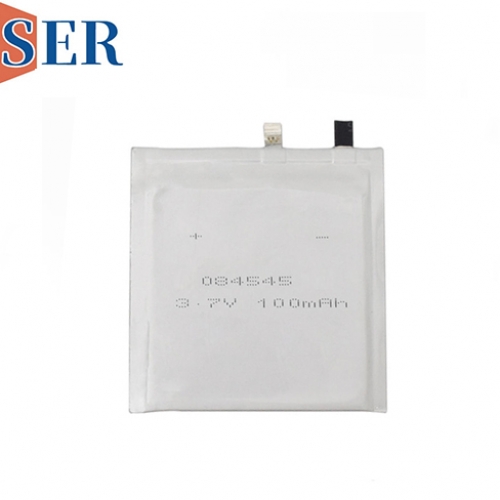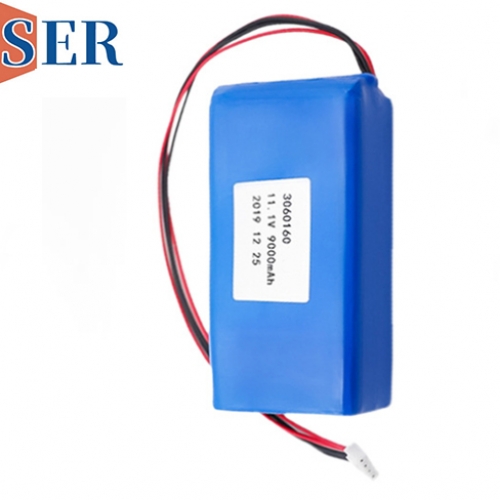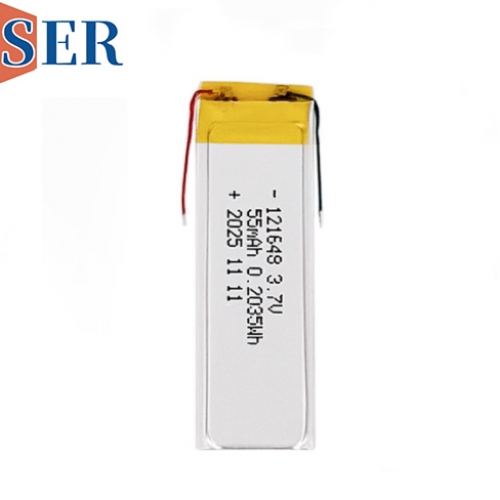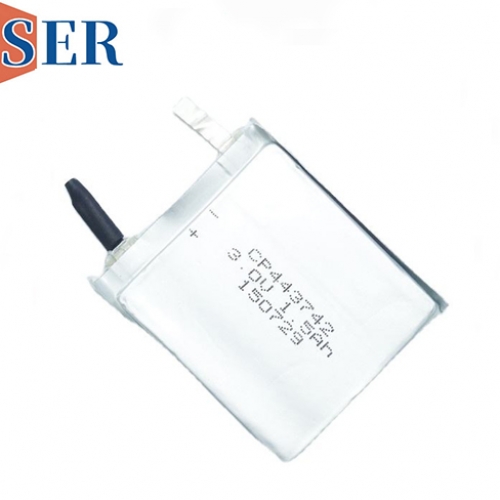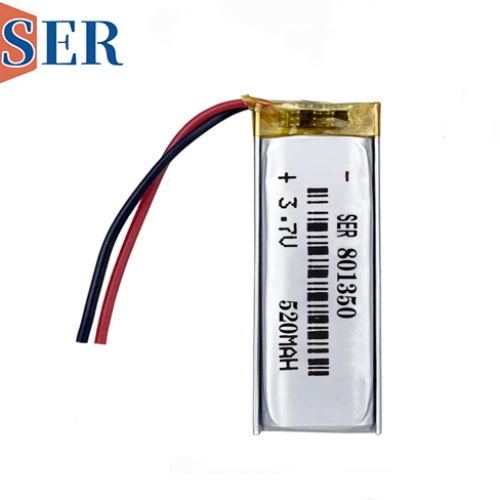CP702340 Ultra-Thin Flat Prismatic LiMnO₂ Battery 3V 1500mAh
CP702340 Ultra-Thin Flat Prismatic LiMnO₂ Battery 3V 1500mAh
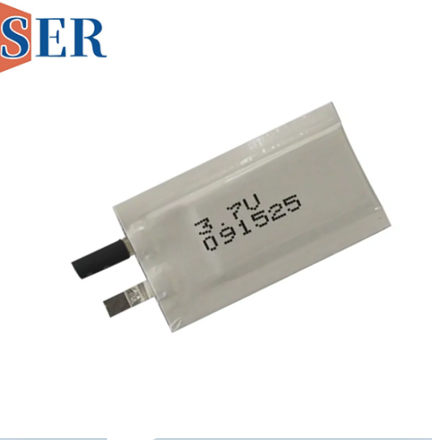
In the era of precision measurement and industrial automation, the performance of core components directly determines the reliability of entire systems. For devices like Acoustic Doppler Current Profilers (ADCP) – which play a critical role in hydrological monitoring, marine research, and environmental protection – the battery is not just a power source but a cornerstone of operational efficiency. Serui Battery, a leader in advanced lithium battery technology, proudly presents the CP702340 Ultra-Thin Flat Prismatic LiMnO₂ Battery: a 3V 1500mAh high-energy solution engineered to meet the most demanding requirements of modern electronic devices. Designed with a rectangular shape, ultra-thin profile, and a suite of industry-leading features, this battery redefines power density, stability, and safety – all while aligning with the diverse needs of sectors ranging from hydrology to portable electronics. Visit www.serui-battery.com today to explore how the ultra thin battery CP702340 can elevate your product’s performance.
The Evolution of Power: Why LiMnO₂ Stands Out in Specialized Applications
Before delving into the CP702340’s unique advantages, it’s essential to understand the critical role of lithium manganese dioxide (LiMnO₂) chemistry in specialized power solutions. Unlike conventional lithium-ion batteries, LiMnO₂ batteries offer inherent benefits that make them ideal for low-to-medium drain devices requiring long-term reliability, stable voltage output, and robust safety performance. With a nominal voltage of 3V per cell, LiMnO₂ chemistry eliminates the need for complex series-parallel configurations in many applications, simplifying device design and reducing failure points. This is particularly valuable for precision instruments like ADCP, where circuit simplicity directly translates to measurement accuracy and operational longevity.
In industries such as hydrological monitoring, ADCP devices are often deployed in harsh environments – from deep-sea exploration to remote freshwater basins – where frequent battery replacement is impractical or costly. Traditional batteries may struggle with limited energy density (resulting in short operational cycles), unstable voltage (compromising data accuracy), or poor temperature tolerance (failing in extreme cold or heat). Serui Battery recognized these pain points and invested years of R&D to develop the CP702340, a LiMnO₂ battery that addresses every critical gap in specialized power supply. By combining ultra-thin flat prismatic design with high-energy density and rigorous quality control, the CP702340 sets a new standard for performance in ADCP and beyond.
Unveiling the CP702340: Key Features That Transform Performance
The CP702340 is more than just a battery – it’s a engineered solution built around seven core features that deliver tangible value to manufacturers and end-users alike. Each feature is optimized to solve real-world challenges, ensuring that the battery not only meets technical specifications but also enhances the overall performance and usability of the devices it powers.
1. High Energy Density: Maximizing Runtime Without Compromising Size
Energy density is the lifeblood of portable and remote-operated devices, and the CP702340 excels in this critical metric. Boasting a high energy density rating that outperforms many conventional lithium batteries in its class, this 1500mAh power source delivers extended runtime for ADCP systems and other power-hungry devices. For context, a typical ADCP deployed in a river monitoring project may require continuous operation for 6–12 months; with the CP702340’s high energy density, users can significantly reduce the frequency of battery replacements, cutting down on maintenance costs and minimizing operational downtime.
What sets the CP702340 apart is its ability to achieve this high energy density within an ultra-thin flat prismatic form factor. Measuring in a compact rectangular shape (conforming to the CP702340’s standard dimensions), the battery occupies minimal space in device housings, allowing engineers to design sleeker, more lightweight products without sacrificing power. This is a game-changer for ADCP manufacturers, who often face trade-offs between device size, weight, and battery life. With the CP702340, those trade-offs become a thing of the past – enabling the development of more portable, efficient, and cost-effective monitoring solutions.
2. High Single Cell Voltage: Simplifying Design and Enhancing Reliability
At 3V, the CP702340’s single cell voltage is perfectly tailored to the needs of specialized electronics like ADCP. Unlike lower-voltage batteries that require multiple cells in series to meet device power requirements, the CP702340’s 3V output often suffices as a standalone power source. This simplifies circuit design, reduces the number of components, and lowers the risk of voltage mismatches or connection failures. For precision instruments, this simplicity is invaluable: fewer components mean fewer potential points of failure, translating to more reliable long-term operation.
Moreover, the CP702340’s voltage output remains consistent across its entire discharge cycle – a critical advantage for ADCP and other measurement devices. Fluctuations in voltage can skew sensor readings, leading to inaccurate data that compromises research or monitoring outcomes. With the CP702340, users can trust that their devices will receive a stable, reliable power supply from the first day of deployment to the last, ensuring data integrity and operational confidence.
3. Light Weight: Optimizing Portability and Deployment Efficiency
In applications where devices are deployed in remote or hard-to-reach locations – such as deep-sea ADCP stations or mountainous hydrological monitoring sites – weight is a critical factor. Heavy batteries increase the difficulty of transportation, installation, and maintenance, adding time and cost to operations. The CP702340 addresses this challenge with its lightweight design, which leverages advanced materials and optimized cell structure to minimize weight without sacrificing performance.
Compared to traditional cylindrical batteries or bulkier prismatic alternatives, the CP702340’s flat, thin profile and lightweight construction make it ideal for portable and deployable devices. For field researchers and technicians, this means easier handling, reduced fatigue during installation, and lower transportation costs. Additionally, the battery’s lightweight design contributes to the overall efficiency of the device: in battery-powered ADCP systems, less weight can improve buoyancy or reduce the energy required for deployment, further extending operational runtime.
4. High Security: Ensuring Safety in Every Environment
Safety is non-negotiable in lithium battery applications, especially in devices deployed in sensitive or harsh environments. The CP702340 is built with a focus on robust safety performance, leveraging the inherent stability of LiMnO₂ chemistry combined with Serui Battery’s rigorous quality control and safety engineering. LiMnO₂ batteries are known for their excellent thermal stability, low risk of thermal runaway, and resistance to overcharging and short-circuiting – making them inherently safer than many other lithium chemistries.
To further enhance safety, the CP702340 undergoes a series of stringent tests during production, including short-circuit testing, crush testing, high-temperature exposure, and overcharge/overdischarge protection. Serui Battery’s manufacturing facilities adhere to international quality standards (ISO 9001, CE, UL), ensuring that every battery meets the highest safety requirements. For users deploying devices in remote or 无人看管 locations, this safety assurance is invaluable: the CP702340 minimizes the risk of battery-related failures, protecting both equipment and the environment.
5. Stable Operating Voltage: Guaranteeing Data Integrity and Performance
As mentioned earlier, voltage stability is critical for precision instruments like ADCP, where even minor fluctuations can impact measurement accuracy. The CP702340 is engineered to maintain a stable operating voltage throughout its discharge cycle, thanks to the superior electrochemical properties of LiMnO₂ and Serui’s advanced cell design. Unlike some lithium-ion batteries, which experience significant voltage drops as they discharge, the CP702340’s voltage remains consistent, ensuring that devices perform at their optimal level from start to finish.
This stability is particularly beneficial for long-term deployments. For example, an ADCP monitoring a river’s flow rate over a 12-month period requires a battery that can deliver consistent power without voltage dips that might cause the device to shut down or produce unreliable data. The CP702340’s stable voltage output ensures that such devices operate continuously and accurately, providing researchers and engineers with the reliable data they need to make informed decisions.
6. Wide Operating Temperature Range: Thriving in Extreme Conditions
Many specialized devices, including ADCP, are deployed in environments with extreme temperatures – from the freezing waters of the Arctic to the scorching heat of desert regions. Traditional batteries often struggle in these conditions, with reduced capacity, shortened lifespan, or complete failure. The CP702340 is designed to thrive in a wide operating temperature range, typically from -20°C to 60°C (with extended ranges available upon request), making it suitable for use in nearly any climate or environment.
This temperature tolerance is achieved through careful selection of materials and electrolyte formulations, which ensure that the battery’s electrochemical performance remains consistent across varying temperatures. For example, in cold environments, the CP702340 maintains its capacity and voltage output, ensuring that ADCP systems continue to operate reliably even in freezing conditions. In hot environments, the battery’s thermal stability prevents overheating and performance degradation, extending its lifespan and ensuring consistent power delivery. This wide temperature range makes the CP702340 a versatile solution for global applications, from polar research to tropical hydrological monitoring.
7. Low Self-Discharge Rate: Extending Shelf Life and Reducing Waste
Self-discharge is a common challenge in lithium batteries, where stored energy gradually dissipates over time even when the battery is not in use. For manufacturers and users, this means shorter shelf lives, increased inventory costs, and the risk of deploying batteries with reduced capacity. The CP702340 addresses this issue with an ultra-low self-discharge rate, typically losing less than 2% of its capacity per year when stored properly.
This low self-discharge rate extends the battery’s shelf life to up to 5 years, allowing manufacturers to maintain inventory without worrying about premature capacity loss. For end-users, this means that batteries can be stored for extended periods before deployment, ensuring that they are fully charged and ready to use when needed. This is particularly valuable for emergency equipment, backup power systems, or devices that are deployed intermittently. Additionally, the low self-discharge rate reduces waste, as fewer batteries are discarded due to capacity loss, making the CP702340 a more sustainable choice for environmentally conscious organizations.
The CP702340 in Action: Applications Beyond ADCP
While the CP702340 is optimized for ADCP systems, its versatile design and exceptional performance make it suitable for a wide range of other applications. From portable electronics to industrial sensors, this battery delivers the reliability, efficiency, and safety that modern devices demand.
Hydrological and Marine Monitoring
Beyond ADCP, the CP702340 is ideal for other hydrological monitoring devices, such as water level sensors, flow meters, and 水质监测仪 (water quality monitors). These devices often require long-term, low-power operation in harsh aquatic environments, and the CP702340’s high energy density, stable voltage, and water-resistant design (when paired with appropriate housing) make it the perfect power source. In marine research, the battery can power underwater cameras, acoustic sensors, and data loggers, providing reliable power for extended missions.
Portable Electronics
The CP702340’s ultra-thin, lightweight design makes it suitable for a range of portable electronics, including handheld meters, portable medical devices (such as blood glucose monitors or pulse oximeters), and wireless sensors. These devices require compact, high-performance batteries that can deliver stable power for extended periods, and the CP702340 meets these needs with its 1500mAh capacity and low self-discharge rate.
Industrial Automation
In industrial settings, the CP702340 can power remote sensors, wireless communication devices, and backup systems. These applications often require batteries that can withstand extreme temperatures, voltage fluctuations, and mechanical stress, and the CP702340’s robust design and safety features make it a reliable choice. For example, the battery can power sensors in manufacturing plants, oil refineries, or construction sites, providing continuous data collection without the need for frequent maintenance.
Emergency and Backup Power
The CP702340’s long shelf life, low self-discharge rate, and high safety performance make it suitable for emergency and backup power applications. From emergency lighting to backup communication systems, this battery can provide reliable power when primary power sources fail. Its compact size and lightweight design also make it easy to store and transport, ensuring that it is readily available in case of emergencies.

